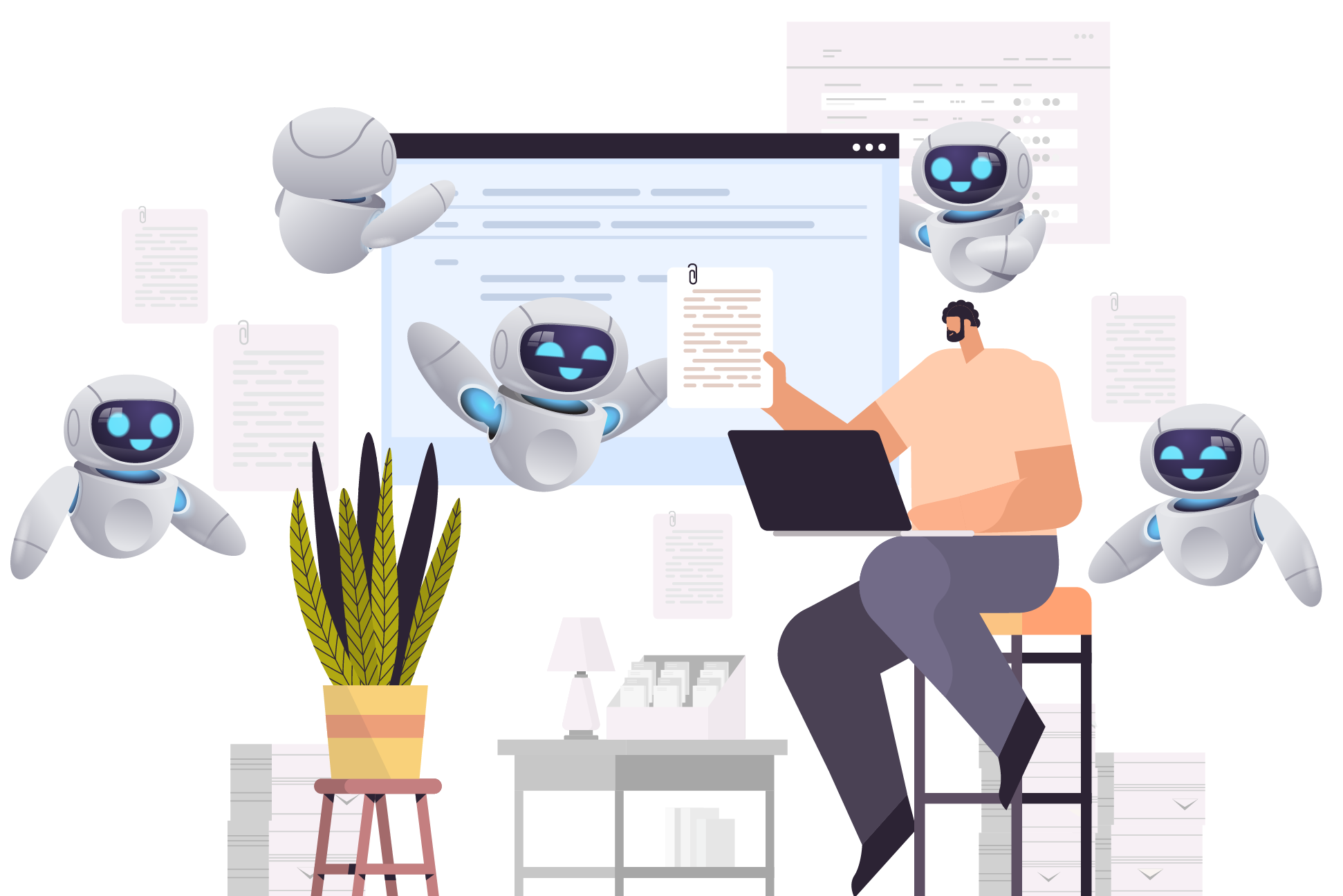The integration of artificial intelligence (AI) and offshore teams has emerged as a transformative solution, empowering organizations to optimize operations and drive growth. By harnessing the power of AI alongside offshore talent, businesses can unlock new efficiencies, enhance productivity, and position themselves for long-term success.
Understanding Smart Scaling in Business
Scaling is a crucial phase for any growing organization. It involves expanding operations to meet increasing demand while maintaining profitability and efficiency. Traditional scaling methods often come with challenges such as rising operational costs, limited access to skilled talent, and inefficiencies that hinder growth.
Smart scaling, however, focuses on leveraging technology and innovative workforce solutions to overcome these obstacles. AI and offshore teams provide a modern approach to scaling, enabling businesses to address skill shortages, optimize outsourcing processes, and achieve sustainable growth without incurring excessive costs.
Smart scaling is not only about growth but also about maintaining agility. This involves being responsive to market changes, adopting technologies that enhance flexibility, and diversifying workforce strategies. Businesses that scale smartly can maintain a competitive edge even during periods of economic uncertainty or technological disruption.
The Role of AI in Scaling Operations
Artificial intelligence has revolutionized how businesses operate. By automating repetitive tasks, enhancing decision-making, and improving productivity, AI plays a pivotal role in scaling operations. Here are some key ways AI contributes to smart scaling:
Automation of Repetitive Tasks
AI-powered tools can handle routine tasks such as data entry, payroll processing, and customer inquiries. By automating these functions, businesses can free up valuable time for employees to focus on strategic and creative tasks, ultimately improving overall efficiency.
AI-based automation also ensures accuracy and consistency, reducing errors in critical business processes. For example, AI tools can streamline financial reporting or inventory management, saving both time and money. Advanced tools can even analyze trends in supply chains, predict disruptions, and propose alternative solutions, ensuring smooth operations at scale.
Enhanced Decision-Making Through Data Analytics
AI enables organizations to analyze large volumes of data quickly and accurately. By identifying patterns and trends, AI provides actionable insights that drive informed decision-making. This is particularly useful for scaling businesses, as it helps optimize resource allocation and predict future demands.
Through predictive analytics, AI can help businesses forecast market trends, identify risks, and uncover growth opportunities. This empowers decision-makers to adapt strategies proactively, ensuring sustainable scalability. Furthermore, AI can simulate various business scenarios, allowing leaders to test strategies and make data-backed decisions with confidence.
Personalizing Customer Experiences
AI-driven technologies such as chatbots and recommendation engines allow businesses to deliver personalized experiences to customers. This not only enhances customer satisfaction but also drives revenue growth, making AI a valuable tool for scaling operations.
Personalization goes beyond marketing—it extends to customer support and product development, ensuring businesses remain customer-centric even as they scale. For instance, AI can analyze customer feedback in real-time, enabling businesses to make adjustments to their offerings and improve loyalty.
Key AI Tools for Scaling
- Robotic Process Automation (RPA) for automating repetitive tasks.
- AI-driven analytics platforms for data analysis and insights.
- Workforce management tools for optimizing team productivity.
- Natural language processing (NLP) for improved communication and customer interactions.
- Machine learning algorithms for predictive modeling and scenario planning.
Advantages of Offshore Teams in Business Growth

Offshore teams have become a cornerstone of smart scaling strategies. By leveraging global talent, businesses can access diverse skill sets, reduce labor costs, and operate around the clock. Here are the key advantages of incorporating offshore teams:
Access to a Global Talent Pool
Offshore staffing allows businesses to tap into a vast pool of skilled professionals worldwide. This is especially beneficial for industries facing local talent shortages, as offshore hiring provides access to highly specialized expertise.
With offshore talent, companies can diversify their workforce by bringing in unique perspectives and innovative approaches to problem-solving. Offshore teams often come with extensive experience in global markets, providing insights that help businesses adapt to different regions and customer needs.
Cost-Effectiveness
Hiring offshore talent is often more cost-effective than hiring locally. Businesses can reduce expenses related to salaries, benefits, and office infrastructure, enabling them to allocate resources to other growth initiatives.
Additionally, offshore teams often provide flexibility in contract terms, allowing businesses to scale operations without long-term financial commitments. Many businesses also save on training costs, as offshore professionals frequently bring niche skills to the table.
Flexibility in Scaling
Offshore teams provide the flexibility to scale operations up or down as needed. This adaptability is crucial for businesses navigating seasonal demand fluctuations or project-based workloads.
For instance, companies in e-commerce or tech can ramp up their offshore workforce during peak seasons or major project rollouts without overextending their local resources. This level of flexibility ensures businesses remain agile and can pivot quickly when required.
Around-the-Clock Productivity
With offshore teams operating in different time zones, businesses can achieve 24/7 productivity. This ensures faster turnaround times and enhanced customer support, giving organizations a competitive edge.
Round-the-clock operations also enable businesses to respond quickly to market changes and customer needs, maintaining a high level of service continuity. For example, customer inquiries can be addressed promptly, regardless of the time of day, ensuring satisfaction and loyalty.
Synergy Between AI and Offshore Teams
The combination of AI and offshore teams creates a powerful synergy that enhances workforce efficiency and drives innovation. Here’s how AI complements offshore teams:
Enhancing Team Management
AI-powered tools streamline the management of offshore teams by providing real-time performance tracking, automated reporting, and data-driven insights. This ensures that offshore employees are aligned with organizational goals and deliver optimal results.
For example, AI-driven project management platforms can monitor team progress, allocate resources, and forecast project timelines, ensuring smoother operations. AI tools can also provide regular feedback to team members, helping them improve their performance and feel more engaged.
Facilitating Communication and Collaboration
AI-driven communication tools such as language translation apps and collaboration platforms bridge cultural and language gaps, fostering seamless interaction between onshore and offshore teams.
These tools promote transparency and encourage knowledge sharing, leading to improved collaboration and stronger team dynamics. AI can also analyze communication patterns to identify potential bottlenecks and suggest improvements.
Automating Onboarding and Training
AI simplifies the onboarding process by automating administrative tasks and providing personalized training programs for offshore employees. This ensures a smooth integration into the company’s workflow.
AI-driven training platforms can offer adaptive learning experiences, tailoring content to individual employee needs and skill levels, leading to faster ramp-up times. Gamified training programs powered by AI can also improve engagement and retention among offshore teams.
Tasks That Benefit from AI and Offshore Integration
- Data processing and analytics.
- IT support and software development.
- Customer service and technical support.
- Content creation and digital marketing.
- Quality assurance and compliance monitoring.
- Supply chain and logistics management.
Implementing AI and Offshore Teams: A Step-by-Step Guide
For businesses looking to scale smarter, implementing AI and offshore teams requires a strategic approach. Here’s a step-by-step guide to get started:
Evaluate Business Needs and Set Objectives
Identify the areas of your business that can benefit most from AI and offshore teams. Define clear objectives and performance metrics to measure success.
Consider conducting a needs assessment to identify skill gaps and operational inefficiencies that AI and offshore talent can address. Engage stakeholders across departments to ensure alignment on priorities.
Select the Right Offshore Talent and AI Tools
Choose offshore partners with expertise in your industry and a proven track record. Similarly, invest in AI tools that align with your specific business requirements.
Collaborate with HR and IT teams to vet offshore vendors and ensure compatibility with your organizational goals and systems. Establish clear service-level agreements (SLAs) to set expectations and measure outcomes.
Develop a Communication Framework
Establish communication protocols and use collaboration tools to ensure seamless interaction between onshore and offshore teams. Regular check-ins and feedback sessions are essential for maintaining alignment.
Implement clear reporting structures and designate team leads to ensure accountability across time zones. Use AI to monitor communication effectiveness and suggest improvements.
Onboard and Train Offshore Employees
Create a structured onboarding process that introduces offshore employees to your company’s culture, values, and expectations. Provide comprehensive training to equip them with the skills needed to excel in their roles.
Use AI tools to monitor onboarding progress and identify areas where additional support is needed. Encourage mentorship programs that pair onshore and offshore employees to build rapport and share knowledge.
Monitor and Optimize Performance
Use AI-powered analytics to track the performance of offshore teams and identify areas for improvement. Continuously refine processes to enhance productivity and achieve your scaling objectives.
Regularly review KPIs and use performance insights to inform strategic decisions and investments. Celebrate milestones and achievements to keep teams motivated and aligned with company goals.
Challenges and Solutions in Leveraging AI and Offshore Teams

While the integration of AI and offshore teams offers numerous benefits, it’s not without challenges. Here are some common obstacles and how to address them:
Managing Cultural and Language Differences
Cultural and language barriers can hinder effective communication. Providing diversity training and using AI-powered language translation tools can bridge these gaps.
Encourage cultural exchange programs or virtual team-building activities to foster mutual understanding and respect among team members. Regularly solicit feedback from offshore employees to identify and address cultural challenges.
Ensuring Cybersecurity and Data Protection
Offshore operations often involve handling sensitive data. Implementing robust cybersecurity measures and ensuring compliance with data protection regulations are critical.
Conduct regular security audits and provide cybersecurity training for offshore employees to minimize risks. Use AI-driven security tools to monitor and respond to threats in real-time.
Maintaining Team Cohesion
Geographical separation can lead to a lack of cohesion. Regular team-building activities and virtual meetings help foster a sense of unity among team members.
Promote a culture of inclusion by recognizing offshore employees’ contributions and celebrating team achievements collectively. Use AI to analyze team dynamics and identify opportunities for improvement.
Overcoming Resistance to Change
Employees may resist adopting new technologies or collaborating with offshore teams. Educating staff about the benefits and providing ongoing support can ease the transition.
Leadership should model adaptability and encourage open communication to address concerns proactively. Provide incentives for teams that embrace new processes and achieve milestones.
The Role of HR in Scaling Smarter
Human Resources plays a pivotal role in integrating AI and offshore talent into the workforce. Key responsibilities include:
Talent Sourcing and Recruitment
HR teams must identify and recruit the best offshore talent, ensuring alignment with organizational goals and culture.
Leverage AI-driven recruitment platforms to streamline the hiring process and identify top candidates efficiently. Use data analytics to evaluate recruitment outcomes and refine strategies.
Implementing AI Tools
HR professionals should leverage AI tools to streamline recruitment, onboarding, and performance management processes.
For instance, AI can help match candidates to roles based on skillsets and organizational fit, improving hiring outcomes. AI tools can also predict employee retention, enabling proactive workforce planning.
Fostering Collaboration and Innovation
HR teams can promote collaboration by organizing cross-functional projects and encouraging knowledge sharing between onshore and offshore employees.
Upskilling HR Teams
HR professionals should be trained to manage AI tools and navigate the complexities of offshore workforce management effectively.
Invest in continuous learning programs to keep HR teams updated on the latest trends and technologies in workforce management. Encourage HR to act as strategic partners in scaling initiatives.
Future Trends in AI and Offshore Workforce Strategies
The future of work is poised to be shaped by advancements in AI and the expansion of offshore markets. Key trends include:
- The rise of AI-driven workforce management tools.
- Increased demand for specialized offshore talent in emerging markets.
- The growth of hybrid work models combining remote, onshore, and offshore teams.
- Enhanced focus on sustainability and ethical practices in offshore staffing.
- Greater reliance on AI to drive workforce agility and resilience.
- The emergence of decentralized autonomous organizations (DAOs) leveraging global talent pools.
Conclusion
Scaling smarter is no longer a choice but a necessity for businesses aiming to remain competitive in today’s dynamic landscape. By leveraging the combined strengths of AI and offshore teams, organizations can optimize operations, reduce costs, and drive sustainable growth.
HR leaders and decision-makers must embrace these transformative solutions, invest in the right tools and talent, and foster a culture of innovation. With a strategic approach, businesses can unlock the full potential of AI and offshore teams, paving the way for long-term success.
As the workforce landscape continues to evolve, companies that adopt agile and technology-driven scaling strategies will not only survive but thrive in the global marketplace.




